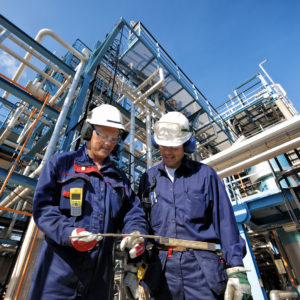Global climate change gained a new urgency for world leaders when a new report from the UN’s Intergovernmental Panel on Climate Change (IPCC) found that it would take “rapid, far-reaching and unprecedented changes in all aspects of society” to avoid catastrophic levels of global warming as early as 2030. The IPCC warns that without draconian emissions cuts far above what the world has been able to achieve thus far, global warming will surpass the 1.5°C limit which global leaders have been discussing for years. Is that such a bad thing, though? Some say no, arguing that the benefits of industrialization have improved human life far more than global warming has harmed it.
According to the IPCC report, the situation is grim–global warming is unstoppable unless consumers start traveling less, ridesharing, eating less meat, and increasing the energy efficiency of their homes. Although the IPCC’s report speaks mostly of likelihoods and probabilities, the authors fret over harms that “will persist for centuries to millennia” unless action is taken now.
Even so, not everyone is ready to settle down to sitting at home with a vegetarian burger. Joseph Bast and Peter Ferrara, two senior fellows at the Heartland Institute, researched the human benefits of industrialization on the request of a California judge hearing the state of California’s lawsuit against BP and other energy companies. The evidence the two researchers found argues that it was better to industrialize and warm than not industrialize at all.
“Fossil fuels are lifting billions of people out of poverty, reducing all the negative effects of poverty on human health,” they write. “Fossil fuels are vastly improving human well-being and safety by powering labor-saving and life-protecting technologies, such as air conditioning, modern medicine, and cars and trucks.”
They explain that, for much of human existence, just keeping fed and warm required large amounts of time and labor. Not until the Industrial Revolution–and the introduction of coal, the first fossil fuel–were people able to improve their productivity and standard of living. Energy allowed for factories, cheaper goods, and a new, higher standard of living.
The same trend continues today. Cheaper energy allows for more economic growth and the creation of new businesses and new wealth, reshaping everything from manufacturing to farming. In fact, food production has been one of the less-publicized, yet still crucial benefits of fossil fuel production. As efficiency gains led farmers to trade their horses and mules for tractors, crop yields increased even as fewer and fewer people were needed to work in the fields. In the course of two centuries, some 80 percent of the developed world’s population left agriculture for other industries.
And the benefits don’t stop there. Ammonia fertilizer is produced from natural gas, allowing higher yields from less farmland. Talk of transitioning away from a “fossil fuel economy” often ignores these tertiary benefits in favor of a discussion of harms yet to be seen. Despite the predictions of inevitable famine, crop productions have continued to rise globally, sometimes even benefiting from warmer temperatures.
In fact, higher CO2 levels in the air actually boost plant growth, functioning like airborne plant food. Bast and Ferrara studied the impacts of predicted crop gains due to higher CO2 levels, arguing that they are likely to be significant enough to offset predicted harms.
“The benefits of CO2 fertilization are so great they exceed the entire “social cost of carbon” claimed by the Obama-era EPA. And even these estimates do not include the benefits realized by the timber industry, outdoor recreation, and other industries that benefit from the general greening of the Earth,” they wrote.
In light of the benefits of fossil fuels, the sort of dramatic efforts pushed by the IPCC to curb emissions start to look even more grim. Halting global warming would require the sacrifice of technology that has allowed the world’s population to surge in size while becoming richer. While western nations could perhaps absorb the cost of shifting their energy sources, severe cuts in global emissions would likely hurt the world’s poorest citizens.
“The bottom line is that an enormous increase in energy supply will be required to meet the demands of projected population growth and lift the developing world out of poverty without jeopardizing current standards of living in the most developed countries,” concluded one group of social ecology professors in a recent paper for BioScience.
If the cost of abandoning fossil fuels is so high, should it still seriously be considered as a policy goal?
The argument may become increasingly relevant as international and domestic policymakers are forced to grapple with the reality that it may not be feasible to limit warming to 1.5°C. Even the IPCC’s report mulled over this reality:

